Q&A: Superintendent Dr. Mark Miles Discusses Tenure
Media by Waha Siddiqui
Superintendent Dr. Mark Miles said he has been able to connect and build quality relationships with students, staff and community members while serving RSD. “That is very important for any leader in any organization to build relationships with individuals throughout the organization,” Dr. Miles said. “I certainly have had much support.”
Superintendent Dr. Mark Miles announced his retirement Friday, April 9, effective Wednesday, June 30, which he said marked a bittersweet transition from his 26-year career in education.
He served as RSD’s superintendent for two years, during which he made many difficult decisions such as activating the Alternative Learning Plan (ALP) to end the 2019-20 school year, beginning the 2020-2021 school year with an all-virtual education, returning students to in-person learning and removing the Eureka High School baseball teams hats that displayed the “thin blue line” flag last month.
Some members of the community disagreed with Dr. Miles’ decisions.
Dr. Miles confirmed he received hateful messages regarding some of his COVID-19-related decisions within the last year, but he said he never felt threatened. He also confirmed that RSD increased security at recent Board meetings in response to negative tones from some community members.
Dr. Miles denied hate mail, security concerns or the Board election played a role in his retirement.
The Messenger spoke with Dr. Miles regarding his tenure.
Q: Tell me about the unique challenges you faced as superintendent and as a person.
Time away from family and trying to make it through all of those significant decisions takes a professional and personal toll with the physical, emotional and mental challenges presented.
— Dr. Mark Miles
A: There are challenges that intermingle in my personal and professional life. COVID-19 presented a number of challenges in trying to get students back to school safely, supporting staff, determining mitigation strategies to use and the timing to return. Making decisions about academics and athletics came with a heavy burden because one wants to prioritize the safety of our students and staff. There were still so many unknowns about COVID-19 when we began our transition back to school in September. Also, I am a husband and father. Time away from family and trying to make it through all of those significant decisions takes a professional and personal toll with the physical, emotional and mental challenges presented. There are some expanded family dynamics I was considering as well.
Q: An article by Fox2 said it seemed the COVID-19 pandemic played a role in your decision to retire. How would you evaluate that?
A: That was a factor, but it was certainly not the only factor that led me to the decision. I don’t want to speak for all other superintendents in the area, but COVID-19 has added an additional stressor to an already challenging job when you don’t have a pandemic.
Q: A few of your decisions resulted in community backlash or controversy during the pandemic. Could you share your thoughts on how you handled academics and schooling?
A: We made the decision to go virtual based on data from the survey we conducted in June that showed the numbers of cases in the area were much lower than they were in mid-August. In September, we were consulting with groups of superintendents as well as local and regional health officials. We were collaborating extensively about mitigation strategies, masking and sanitation and social distancing. We’ve been tracking the number of cases and quarantines within our school, and we feel as if we’ve had success using the mitigation strategies we’ve put in place in support of academic achievement.
Q: Would you be able to share your thoughts on the handling and approach of school sports and afterschool activities amid the pandemic?
A: The decisions were based upon review of some of the scientific data provided. Sam Page declared that high contact sports in the fall weren’t going to be allowed in St. Louis County. Just a few miles up the road, students were being allowed to play. So in a press conference, I acknowledged that Page has a job to do as county executive, and I acknowledged that as superintendent, I had a job to do as well. Shortly thereafter, high contact sports returned to St. Louis County. The provision of extracurricular activities and athletic activities are an extension of our schools and for many of our students, they connect them with their peers and our schools.
Q: Another situation to elicit controversy was how RSD handled the Eureka baseball team’s caps with the “thin blue line.” Could you share your thoughts on handling that decision?
All these challenges have occurred almost simultaneously. That creates significant challenges for the superintendent and school district leaders.
— Dr. Mark Miles
A: The “thin blue line” flag can be interpreted in many different ways based upon one’s experiences with law enforcement. The addition of that symbol was in violation of uniform guidelines from the Missouri State High School Athletic Association. I want to affirm that we support law enforcement, we support our firefighters and military. By no means should that decision detract from our support of them. But we want to create an inclusive environment for all of our students, in every decision.
Q: Did handling these decisions, or the difficulty of them, play a role in your decision to retire?
A: As superintendent, one is going to face criticism from time to time. All or any of these decisions presented a challenge. If you take these all together, and in talking about COVID-19, I have to realize that it’s the reality of the job. I’m always open to feedback and consider the perspectives of others that support or are not supportive of a particular decision.
Q: Would you be able to elaborate on having to make those decisions, while facing the challenges of COVID-19 and community backlash, in a short period of time?
A: All these challenges have occurred almost simultaneously. That creates significant challenges for the superintendent and school district leaders. When you look around the state and county, the Clayton superintendent retired this year as well as another couple of school districts like Springfield and Columbia. Their superintendents retired as well as others I haven’t mentioned.
Q: Did the timing of your announcement to retire affect the Board?
A: The Board of Education has been extremely supportive of me and this decision, and the timing is not great. Normally you announce that in the fall. In my own way, I have been struggling with this decision. As I shared the information with the Board of Education, they were extremely supportive. They had just extended my contract to 2024, so I don’t want to speak for the Board of Education, but they expressed disappointment.
Q: Are there any decisions you could look back on now that you’d make differently?
A: As I look at the Rockwood experience and compare and contrast it with the experience of districts nearby and nationwide, I am very proud of the work of our students, staff and those in our community who have supported our work.
Q: Do you have any plans after leaving Rockwood and how would you like to be remembered?
A: I am exploring some opportunities in the private sector, but those have not been finalized. I think the story of my superintendency will be told by others in that I served during this challenging time. I would like to be remembered as someone who served others with patience, grace, compassion and care. I would also like to be remembered as someone who made decisions by putting students first.
Your donation will support the student journalists of Marquette High School. Your contribution will allow us to purchase equipment and cover our annual website hosting costs. You may become a PATRON by making a donation at one of these levels: White/$30, Green/$50, Blue/$100. Patron names will be published in the print newsmagazine, on the website and once per quarter on our social media accounts.
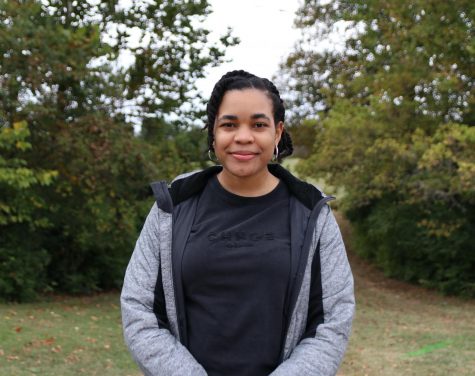
Lauren Pickett, senior, is the In-Depth Editor for the MHS Messenger. This is her second full year on staff. Also, Lauren participates in two other activities:...
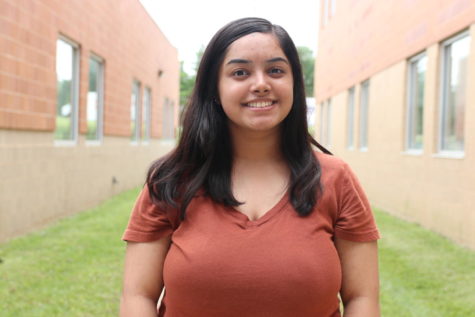
Waha Siddiqui, senior, is the Editor in Chief of the Messenger for the 2020-2021 school year. Beside her involvement in student journalism at Marquette,...



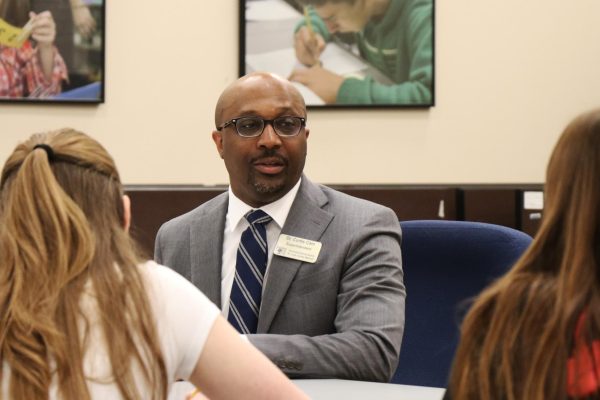

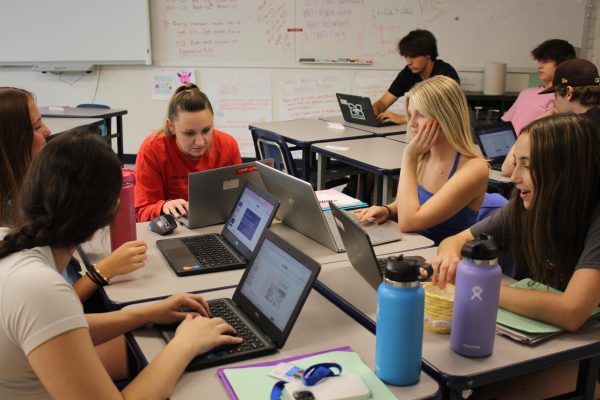
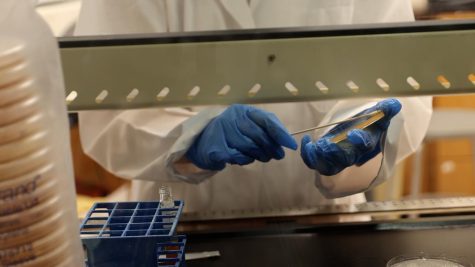
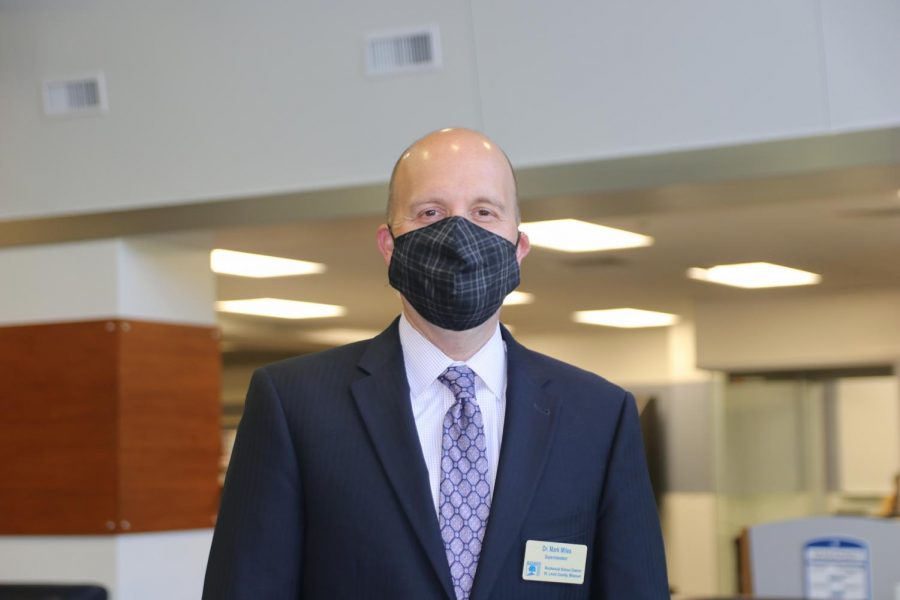
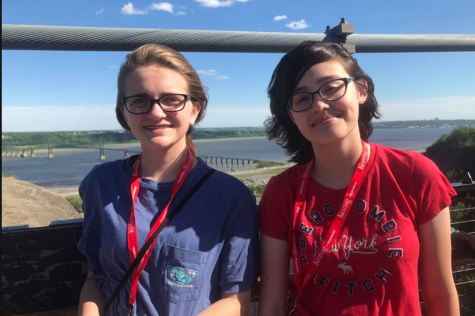
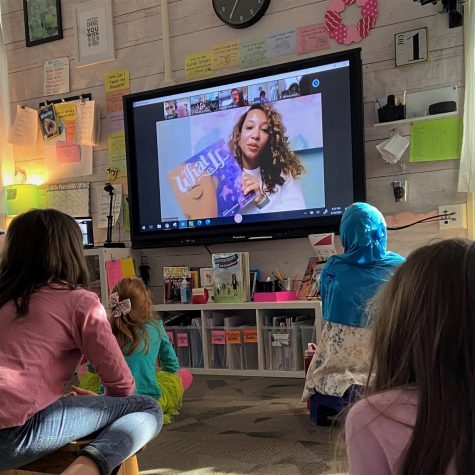
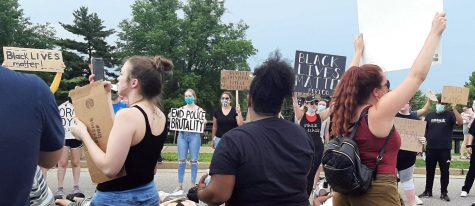

![Superintendent Dr. Mark Miles attends the Nov. 5 Board of Education (BOE) meeting last year. In a letter to the RSD community, Dr. Miles said his retirement is a bittersweet transition as his 26-year career in public education concludes. I am thankful for my time in Rockwood School District, Dr. Miles said. [RSD] is truly a special place with remarkable people providing exceptional opportunities for our students.](https://marquettemessenger.com/wp-content/uploads/2021/04/8-Edited-475x316.png)